Ecuador quake death toll hits 413
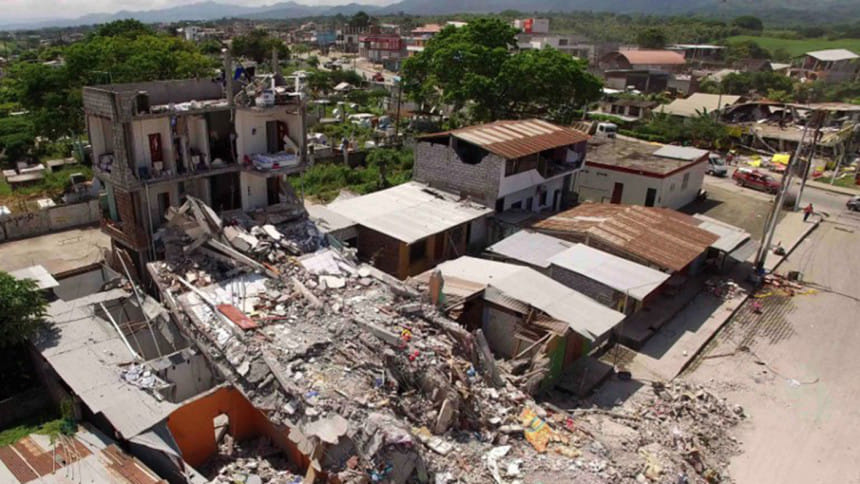
At least 413 people are now known to have died in the earthquake that struck Ecuador, the country's government says.
The 7.8-magnitude quake struck Ecuador's Pacific coast on Saturday, and the search for survivors continues.
The cost of rebuilding is likely to be in the billions of dollars, President Rafael Correa said during a visit to the worst-affected region.
He said it was the biggest tragedy to hit Ecuador in the past seven decades. Some 2,500 people were injured.
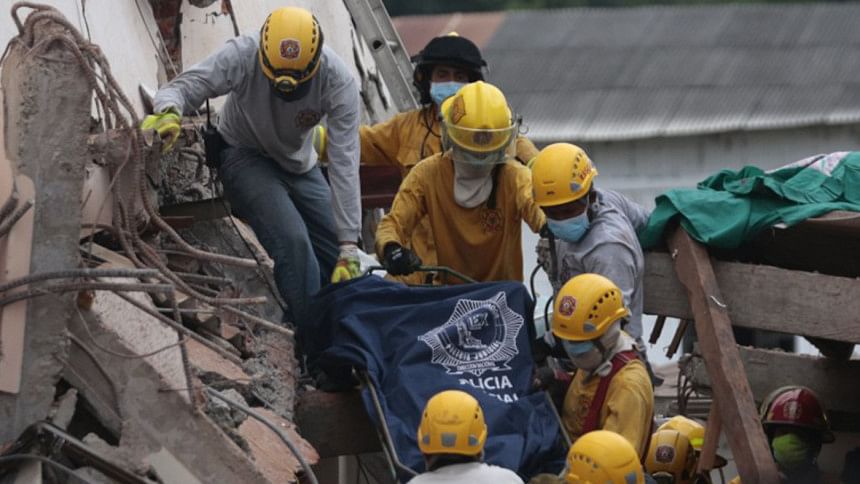
Late on Monday, six people, including two girls - one three years old and the other nine months old - were rescued from the ruins of a hotel near the coastal town of Manta.
Elsewhere, funerals for some of those killed were held in Portoviejo and Pedernales, two towns that were badly hit.
"I fear that figure will go up because we keep on removing rubble," a shaken Correa said in a televised address. "There are signs of life in the rubble, and that is being prioritised."
The president warned that the quake will cost Ecuador billions of dollars. It comes at a time when the oil-producing country is already reeling from the slump in global crude prices.
Luis Almagro, the secretary general of the Organization of American States, said some of the group's rarely-used emergency funds would be unlocked and given to Ecuador to help it rebuild.
Ecuador's finance ministry also announced on Monday it would receive $2bn (£1.4bn) from the China Development Bank, but it was unclear whether the money is directly intended for rebuilding after the quake.
Western Ecuador was hit by a number of strong aftershocks on Monday, the largest of which measured magnitude 5.1.
In Pedernales, close to the epicentre, as many as 400 people are feared dead. Mayor Gabriel Alcivar said the "entire town" had been flattened.
"Pedernales is devastated," he told local media. "Buildings have fallen down, especially hotels where there are lots of tourists staying. There are lots of dead bodies.
"We're trying to do the most we can but there's almost nothing we can do," he added, warning that looting had broken out.
In Portoviejo, a city of 300,000 people 15km (10 miles) from the coast, rescuers rushed to search the debris of flattened buildings for survivors as residents reported the stench of decaying bodies beneath the rubble.
Some looting was also reported in Portoviejo. "I have to take some advantage from this horrible tragedy," one man, Jorge Esquivel, told Reuters. "I need money to buy food. There's no water, no light, and my house was destroyed."
Hundreds of people in Portoviejo and Pedernales are expected to have to sleep outdoors on Monday night.
Four members of the same family were killed when a building collapsed on their car, Associated Press reported. The Quinde family had travelled to the city, where 17-year-old daughter Sayira was due to start university next week.
Elsewhere in Portoviejo, the vibrations reduced part of the city's prison to rubble, allowing 100 inmates to escape. Some were recaptured but others remained on the run, Justice Minister Ledy Zuniga said on Twitter.
In other developments:
-Theresa Crockett, a nun from Northern Ireland who was working in Ecuador, is confirmed as being among the victims
-Two Canadians, named as Jennifer Mawn, 38, and her son, Arthur, 12, died the earthquake, media in Canada report
-One US citizen is among the victims, the State Department says
-More than 13,500 emergency workers are deployed, with some 400 coming from nearby South American countries
The US Geological Survey said the earthquake struck at a fairly shallow depth of 19.2km (11.9 miles), about 27km from Muisne in a sparsely populated area.
The quake was also felt in neighbouring Colombia.
Scientists say there is no connection between the quake in Ecuador and a severe tremor in southern Japan, which also occurred on Saturday.

 For all latest news, follow The Daily Star's Google News channel.
For all latest news, follow The Daily Star's Google News channel. 


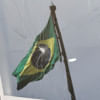
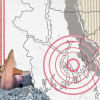

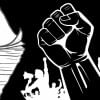


Comments